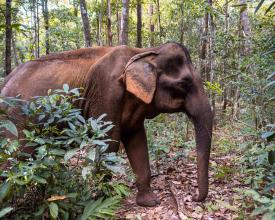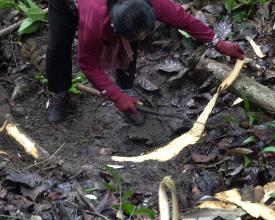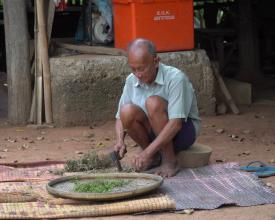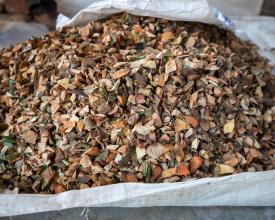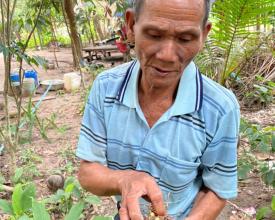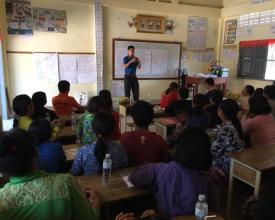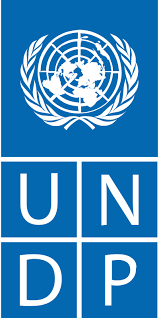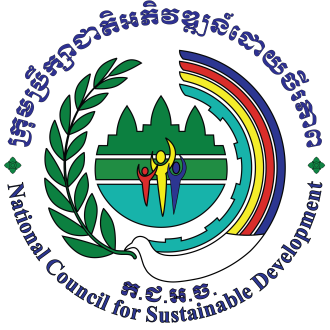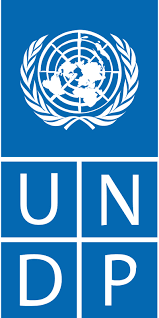
Developing a Comprehensive Framework for Practical Implementation of the Nagoya Protocol
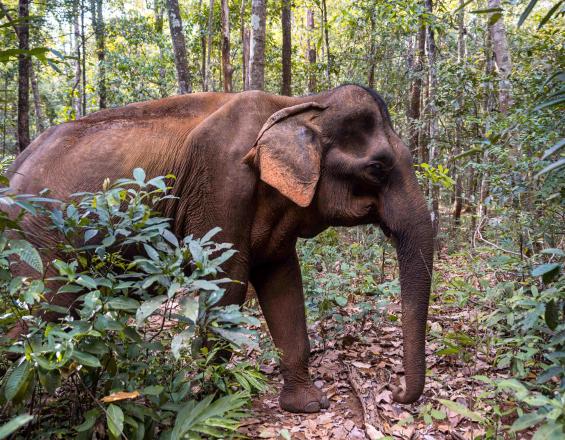
In Cambodia, access and benefits-sharing (ABS) is a newly emerging issue; there is a need for capacity building and awareness-raising at all levels, and a need to bolster communication, networking, and policy. Cambodia has ratified the Nagoya Protocol on Access and Benefit Sharing, and is developing legislation, frameworks, regulations, and national policies on ABS. This effort will generate long term guidance on the issues of capacity building and ABS implementation, and will help achieve the three objectives of the CBD. ABS legislation will inspire action and increase biodiversity knowledge among all stakeholders. Cambodia's National Biodiversity Strategy and Action Plan (NBSAP) will: Strengthen communication, education and public awareness on ABS; develop and implement ABS legislation; and enhance the enabling environment for the development of ABS legislation and implementation of the Nagoya Protocol.
Context
Challenges addressed
as the country continues to manage its transition from a subsistence-based agrarian economy to a consumption-based cash economy, its biological resources are increasingly under threat. These threats include competing for land use from urbanization and infrastructure, poaching of wild plants and animals, overharvesting of forest products, and the effects of climate change. Furthermore, Cambodia is facing the loss of traditional knowledge associated with genetic resources.
To counter these various threats to biodiversity, this project aims to strengthen national capacities for access to benefit sharing of Cambodia’s genetic resources. To achieve this objective, the project supports the creation of an enabling national policy, legal and institutional framework consistent with the Convention on Biological Diversity (CBD) and the Nagoya Protocol.
Location
Process
Summary of the process
There exists a clear link between sustainable biodiversity use and economic growth.
Supporting governments, local communities and the private sector to develop national Access and Benefit-Sharing frameworks, build capacities, and harness the potential of genetic resources, helps safeguard traditional knowledge and protect unique biodiversity.
Developing policies that support this, and building capacity for the local communities that are on the ground, are essential in planning and delivering novel products for the agriculture, crop protection, pharmaceutical, personal care and food/beverage industries.
Building Blocks
Valuing traditional knowledge
The stores of traditional knowledge in upland Cambodia are rich and greatly varied, and include knowledge on conserving nature, health protection, farming systems, and plant and animal species uses and management.
These stores of knowledge reflect the varied geographic areas indigenous peoples and minorities live in, as well as the groups’ respective needs. All societies have utilized the natural environment for sustenance and succour, and the use of plants for medicinal treatment is therefore especially well developed across the globe.
As such, research institutions, private pharmaceutical companies and NGOs have in recent years recognized the importance of conserving this knowledge, but also using it to create benefits, which have not always been equitably shared. The absence of a system for the protection of traditional knowledge can easily result in the further erosion of this valuable knowledge and a permanent loss to local and indigenous communities, the country and the global community at large.
Failure to bring fair and equitable sharing of benefits from the utilization the traditional knowledge and genetic resources - especially for indigenous peoples and local communities - is a key constraint for the effective conservation of biodiversity.
Enabling factors
To remedy these past inequities and build a framework for future success, the ABS project is developing and finalizing national ABS frameworks and roadmaps, as well as models on bio-prospecting, a monitoring framework for tracking genetic resources application, and a monitoring and evaluation plan.
To ensure longevity and sustainability, an effective financial mechanism for benefit-sharing from ABS agreements has been established, with an ABS Administrative Permitting System and check-points inaugurated.
Lesson learned
The power of innovation, realized via the synthesis of traditional knowledge with modern science and technology, has transformed genetic resources into medicines, foodstuffs, and many other products that are indispensable for human existence. In fact, it can be argued that both genetic resources and innovation underpin sustainable development.
Genetic resources are the planet’s patrimony, and can be harnessed for present and future generations; there exists a clear link between sustainable biodiversity use and economic growth. The Nagoya Protocol provides a platform for the equitable sharing of benefits that facilitates sustainable development for indigenous peoples and local communities, and the continued conservation of our natural capital for many years to come.
Trainings designed to build capacity and awareness among the various stakeholders
ABS Project plays an important role in mainstreaming biodiversity topics within the communities and local authorities. Activities related to education usually refer to any official means for building capacity and develop human resources by campaign, teaching, conduct short term training workshop, and so on.
As an example, the National Center of Traditional Medicine (NCTM) is acting as a training center for the holders of traditional knowledge: the Kru Khmers, healers, Chinese traditional medicine experts, etc. The mechanism of NCTM works on training, education, examination, and certification of the Kru Khmers (40-50 Kru Khmers annually) is was consider numerous training sessions held for the local stakeholders on the importance of biodiversity conservation and its value. Project provide ABS’s knowledge by builds upon these achievements and mainstreams practical knowledge about the ABS mechanisms through similar channels of education.
Enabling factors
Training programmes have helped local communities identifying potential value and introducing internationally recognized certificates for genetic resources and traditional knowledge.
Lesson learned
Awareness-raising program is increasing in local level and public people in less formal ways such as a public forum, campaign, workshop, seminar, and conference was conducted and organized for all groups in the society, with particular focus on rural communities who depend more directly on nature for their livelihoods and considered to be the primary custodians of biodiversity.
Impacts
NP-ABS in Cambodia requires a comprehensive assessment of existing traditional knowledge for fair and equitable benefit-sharing. Indigenous peoples and local communities require information on legal aspects. Knowledge of existing biodiversity is essential in developing agreements under the NP. Thus, there is a great deal of interest in ABS legislation among stakeholders, who are working on the valuation of Cambodia’s biodiversity, partnering with scientists throughout the region.
Sub-technical Working Groups were established to assure the effectiveness of NP implementation in the use of ABS to coordinate and provide technical support to the National Council for Sustainable Development for the management and conservation of biodiversity. The concept of ABS is new in Cambodia, and there is a need to inform and build expertise in the country. Community participation in the development and implementation of any ABS legislation is essential. Government institutions, indigenous peoples and local communities all play important roles in conserving and managing natural resources.
The Ministry of Environment (MoE) is developing the Environment and Natural Resources Code, which includes prerequisites for ABS regulations. To accelerate the process, the country is considering the possibility of adopting an interim procedure to codify ABS. The MoE developed the Sub-degree on ABS, awaiting endorsement by parliament.
Beneficiaries
- Decision-makers / legislators
- National authorities
- National ABS Focal Point
- National Competent Authority
- Sub-technical ABS Working Groups
- Indigenous peoples / local communities
- Genetic resources / traditional knowledge providers
- ABS cooperation partners
- End-users
Story
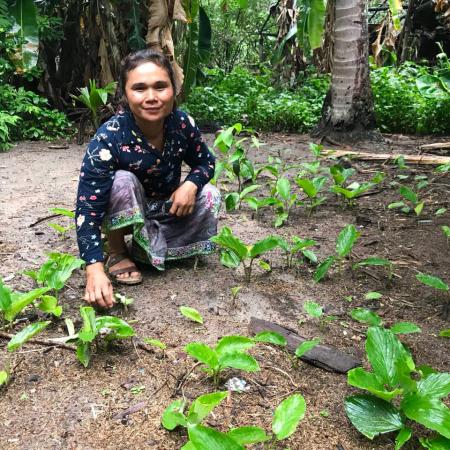
https://undp-biodiversity.exposure.co/the-new-gold-rush-bioprospecting
Bioprospecting for biodiversity: Protecting Cambodia’s rich natural resources and promoting sustainable equitable and fair biodiversity use
The Gold Rush
Rather than hunting for metals and minerals, bioprospecting is the exploration of plant and animal species - and utilization of their genetic resources - for use in pharmaceutical, biochemicals, and a wide array of commercially viable products.
Crucially, bioprospecting takes a sustainable approach to bringing economic benefits to communities that otherwise would be engaged in ecologically detrimental extractive activities.
A rich vein of natural gold
Cambodia’s rich biodiversity - and its associated genetic resources - make it an attractive country for bioprospecting, especially given the high number of known medicinal plants. However, indigenous and local communities were previously left out from fair and equitable benefit sharing.
As the country continues to manage its transition from a subsistence agriculture-based economy to an agro-industrial economy , its biological resources are increasingly under threat. These threats include competing for land use from urbanization and infrastructure, poaching of wild plants and animals, overharvesting of forest products, and the effects of climate change. Furthermore, Cambodia is facing the loss of traditional knowledge associated with priceless genetic resources.
Pioneers of prospecting
To counter these various threats to biodiversity, the UNDP-supported, GEF-financed project, Developing a Comprehensive Framework for Practical Implementation of the Nagoya Protocol in Cambodia, is working to strengthen the country’s capacity for access to benefit sharing vis-à-vis Cambodia’s genetic resources.
Working in partnership with the General Secretariat of the National Council for Sustainable Development, the project supports the creation of an enabling national policy, as well as legal and institutional frameworks consistent with the Convention on Biological Diversity and the Nagoya Protocol.
Supporting this framework, the Royal Government of Cambodia, the private sector and research institutions, and the traditional owners of these resources and its derived traditional knowledge, will work together to protect Cambodia's unique biological resources.

